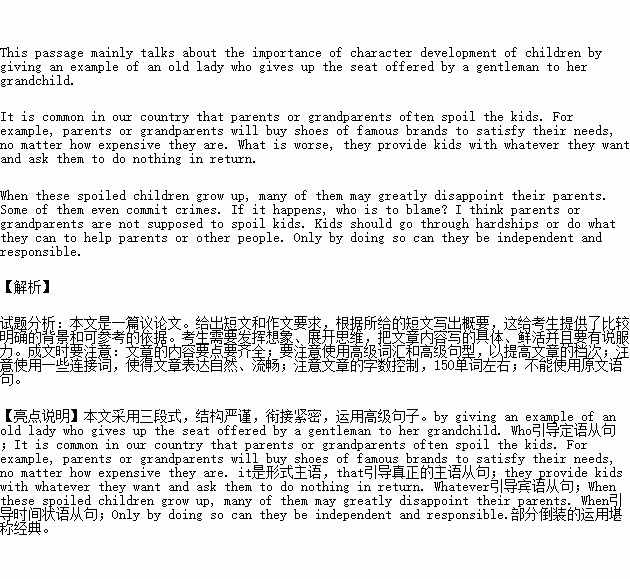题目内容
阅读下面短文,然后按照要求写一篇150词左右的英语短文。
It was 7:30 in the morning. As usual I was on the subway to school. It was so crowded with people that it felt like the air conditioner wasn't working. I was standing there looking around. Then, I saw an old lady get on the train with a 7-year-old child who seemed to be her grandson.
A warm-hearted gentleman generously offered his seat to the old lady. Instead of sitting down herself, however, the old lady called her grandson over and told him to sit.
Sooner or later, children mature and step into the complicated world. Love is necessary in the early development of children, yet, to the disappointment of many, too much love definitely prevents children from learning the rules of the real world. Teaching the child about the rules of society within the family helps the child to achieve success later. By giving up seats to their children, grandparents may destroy kids' best chance for character development.
[写作内容]
1. 以约30个词概括上文的主要内容。
2. 以约120个词谈谈你对长辈溺爱孩子的看法,内容包括:
(1)描述长辈溺爱孩子的表现。(2)溺爱孩子的后果。(3)你对长辈溺爱孩子的看法。
[写作要求]
1. 作文中可以用亲身经历或虚构的故事。2. 不得直接引用原文中的句子。3. 作文中不能出现真实姓名和学校名称。
 名校课堂系列答案
名校课堂系列答案
